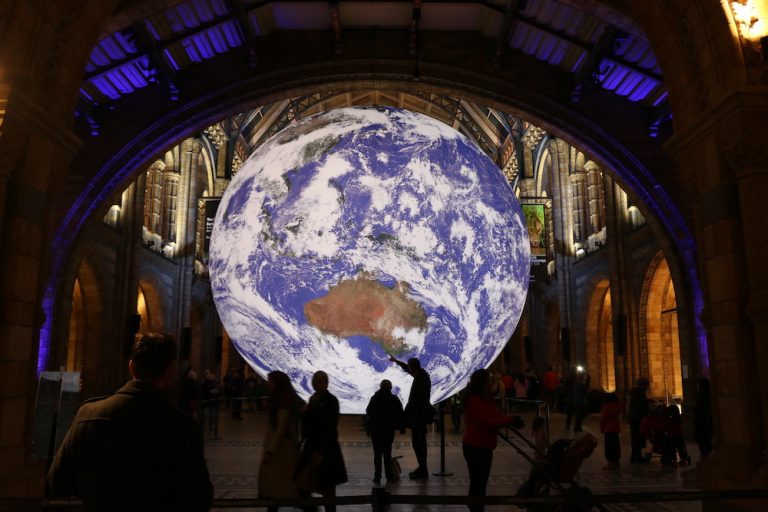“We are delighted that Nobel Week Lights has become such a popular feature of Nobel Week. With this festival, we want to continue to illuminate science and culture during the darkest time of the year in Stockholm. We want to encourage everyone to go out for a winter stroll in the city and share an energy-saving light experience with each other,” says Erika Lanner, Director of the Nobel Prize Museum.
Around 20 artistic light installations inspired by Nobel Prize-awarded achievements will illuminate various locations around the city. A special feature this year is that several of the laureates visiting Stockholm during the Nobel Week will be honoured with artworks that were inspired by their achievements and discoveries.
Outside the Grand Hôtel, Alexander Wolfe will create the installation “Kinesthesia”, which draws inspiration from 2021 medicine laureate Ardem Patapoutian’s discovery of how nerve signals, temperature and touch are connected. The artwork “Unfold” at the Royal Institute of Technology is based on the discovery of XCRISPR/Cas9 gene editing by 2020 chemistry laureates Jennifer Doudna and Emmanuelle Charpentier.
Two of this year’s light installations are linked to the poetry created by 2020 literature laureate Louise Glück. One of the artworks can be experienced in the garden outside the Swedish Centre for Architecture and Design (ArkDes) on the island of Skeppsholmen and the other at Sergels torg, a square in the city centre. At Sergels torg, students from Beckmans College of Design will also create a light installation dedicated to this year’s medicine laureate, Svante Pääbo.
Another innovation this year is that the Royal Palace will feature a light installation. British artist Luke Jerram’s luminous globe “Gaia” will be visible in the Southern Archway. The installation is one of several that have been designed to get visitors thinking about climate change and the need to become involved in environmental issues.
-
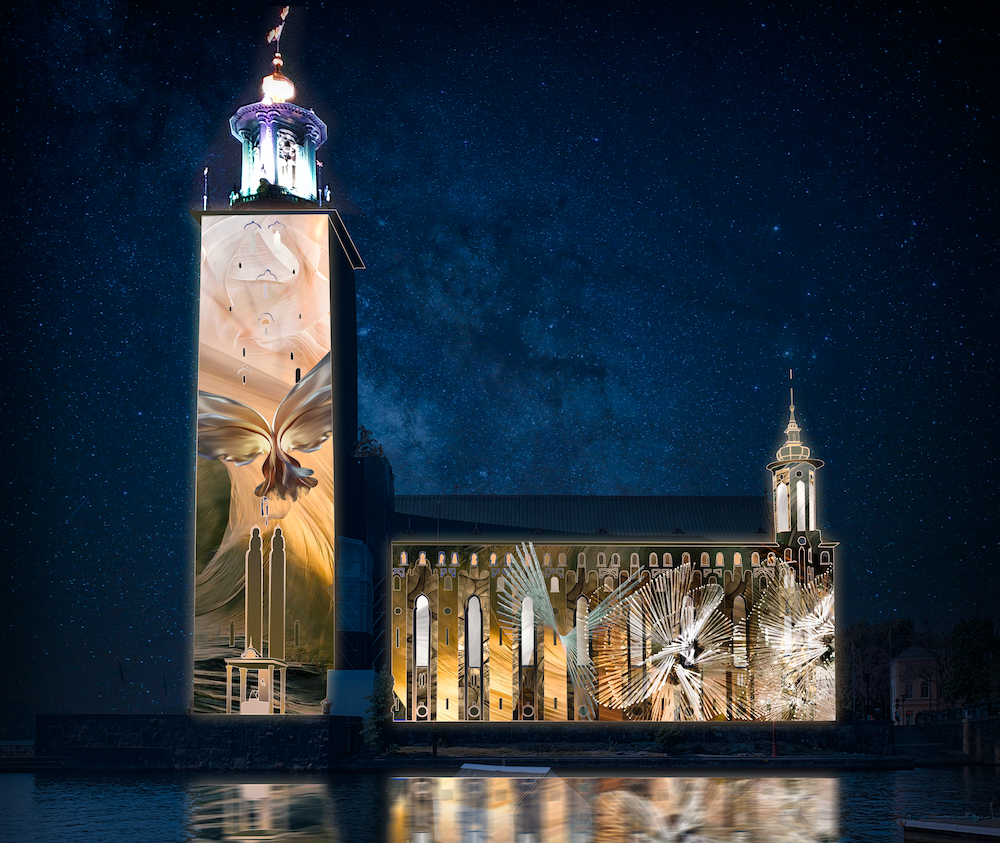
Stockholm City Hall will be illuminated with the artwork "Conscience". Rendering: Atelier BK
-
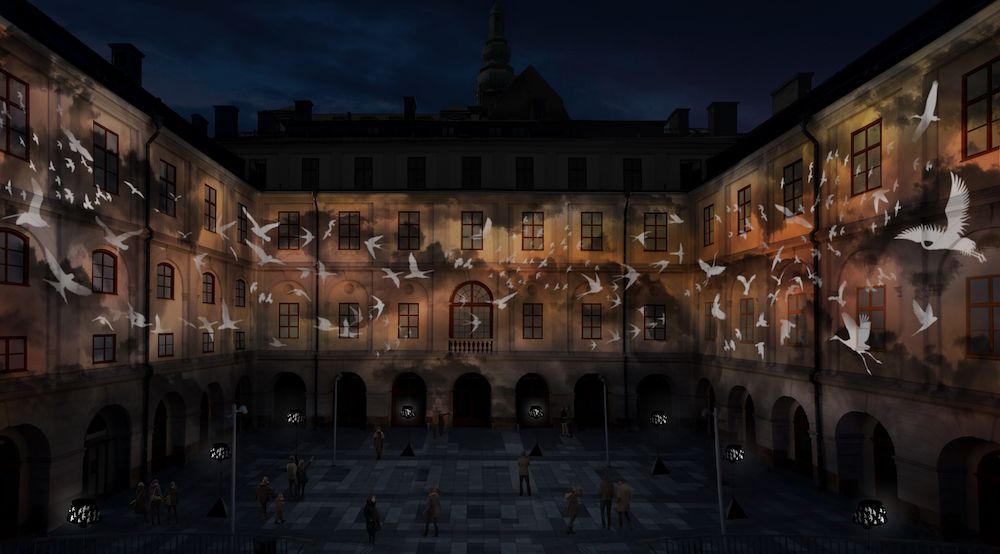
Stockholm City Museum will display the work "Horizon", inspired by the 2007 Peace Prize. The artist is Julia Dantonnet. Rendering: Julia Dantonnet
-
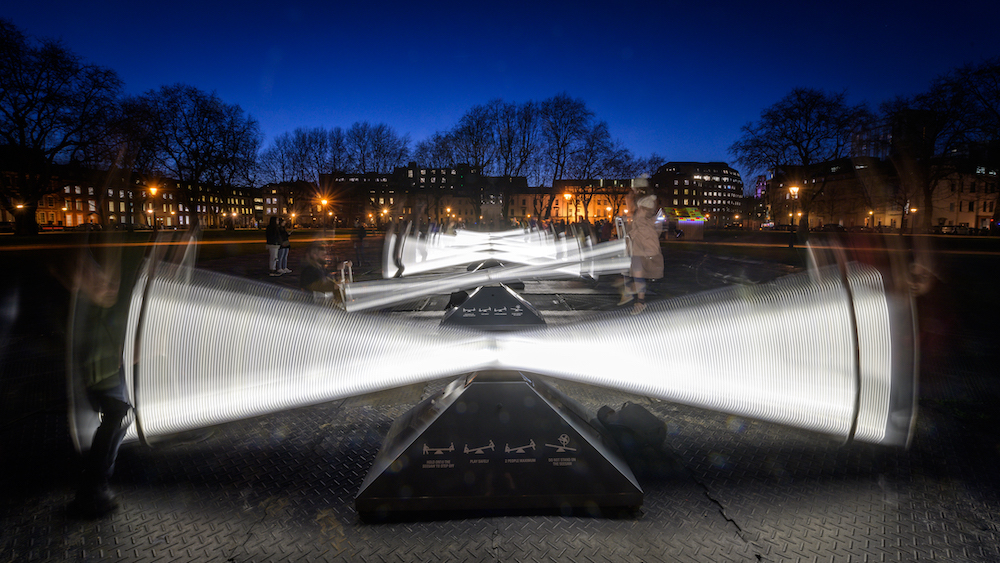
One of the artworks consists of seesaws that illuminate when they go up and down. The artwork "Wave field" will be displayed on Karl XII:s torg (Charles XII Square). Photographer: Andre Pattenden
-
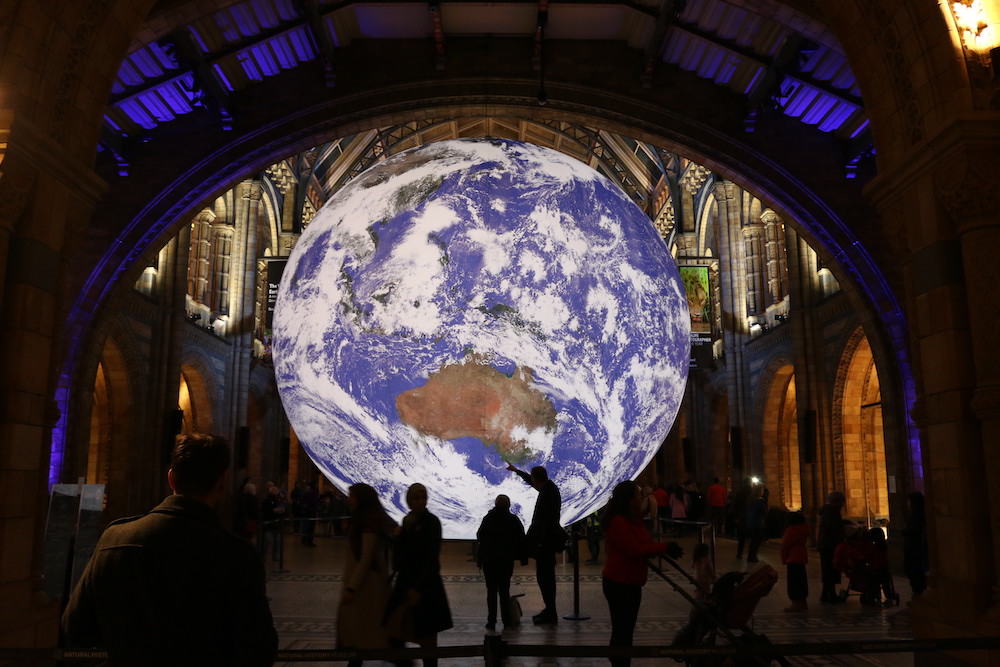
At the Royal Palace, visitors will be able to experience the artwork "Gaia" by Luke Jerram. Here is a photo from when the work was displayed at the Natural History Museum in London.
-
Stockholm City Hall will be illuminated with the artwork "Conscience". Rendering: Atelier BK
-
Stockholm City Museum will display the work "Horizon", inspired by the 2007 Peace Prize. The artist is Julia Dantonnet. Rendering: Julia Dantonnet
-
One of the artworks consists of seesaws that illuminate when they go up and down. The artwork "Wave field" will be displayed on Karl XII:s torg (Charles XII Square). Photographer: Andre Pattenden
-
At the Royal Palace, visitors will be able to experience the artwork "Gaia" by Luke Jerram. Here is a photo from when the work was displayed at the Natural History Museum in London.
Several of this year’s artworks are interactive and are influenced by visitors’ movements, voices and touch. The experience of the installation in Karl den XII:s torg (Charles XII Square) will be based on visitors’ frequent use of the illuminated seesaws. At Storkyrkan (Stockholm Cathedral), visitors will be able to influence the light installation on the church façade by singing along with the choir music from Slottsbacken.
Given the energy supply situation in Europe, the organisers of this year’s Nobel Week Lights have conducted a review of the festival’s total energy consumption. During the nine days of the festival, energy consumption will be an estimated 4,100 kWh, which is a marginal amount of electricity for a cultural experience that was viewed by 350,000 Stockholm residents and visitors last year. If that many people watch television for six minutes per person, they use up the equivalent of the entire festival’s energy consumption over nine days.
The artistic light installation with the highest energy consumption in previous years has been the one at City Hall. This year, a new technical solution will reduce its energy use by 40 per cent compared to last year. This will have a major impact on the festival’s overall energy consumption. Thanks to Nobel Prize-awarded light-emitting diode (LED) technology, the other installations consume an average of only 1 kW, which is less energy than many electrical devices we use in our homes.
See all the lighting installations here.
Participating artists and lighting designers
Alexander Wolfe, Atelier BK, Beckmans College of Design, CS Design + Lateral Office + Mitchell Akiyama, Daniel Rybakken, Emma Hjortenklev Wassberg, Eva Beierheimer, Jim Farula, Johan Thurfjell, Jönköping University + Royal College of Music, Julia Dantonnet, Koros, Kroft + Smids, Luke Jerram, Masamichi Shimada, Philip Nilsson, Rethread, Royal Institute of Technology, Smash Studios, Stockholm University + University of Arts, Crafts and Design, Tove Alderin plus Fredrik Jönsson who will illuminate Ai WeiWei’s sculpture outside Nationalmuseum (the National Museum of Arts and Design).
Locations with artistic light installations
ArkDes, Bofills Båge (a crescent-shaped apartment building near Medborgplatsen), Grand Hôtel, Gustav Adolfs torg (a square in front of the Royal Opera), Karl den Xll:s torg (a park behind the Royal Opera), Royal Institute of Technology, Liljevalch Art Gallery, National Museum of Art and Design, Nobel Prize Museum, Raoul Wallenbergs torg (a square near Nybroplan), Serafimerstranden (a waterside park near City Hall), Sergels torg (a central square), Skeppsholmen (an island near the city centre), Stockholm City Hall, Stockholm City Museum, Royal Palace, the Great Synagogue of Stockholm, Storkyrkan (Stockholm Cathedral) and Tyska Kyrkan (the German Church).
Media contact
press@nobelprize.org
Contact for Nobel Week Lights
Lara Szabo Greisman, Project Manager
lara@nobelweeklights.se, +46 762 44 90 40
Images Nobel Week Lights 2021:
https://nobelprize.org/press-images-nobel-week-lights-2021
Images Nobel Week Lights 2022:
https://nobelprize.org/press-images-nobel-week-lights-2022
(more to come during the festival
About Nobel Week Lights
Nobel Week Lights was initiated and produced by Annika Levin, Alexandra Manson, Lara Szabo Greisman and Troika AB. The event is part of the Nobel Week programme and is being implemented by the Nobel Prize Museum with support from the City of Stockholm, the Erling-Persson Foundation, the Knut and Alice Wallenberg Foundation, the Stockholm Chamber of Commerce as well as numerous other partners and artistic lighting companies. Nobel Week Lights is a tribute to the Nobel Prize laureates and their contributions to the greatest benefit to humankind.
About the Nobel Prize Museum
The Nobel Prize shows that ideas can change the world. The courage, creativity and perseverance of the Nobel Laureates inspire us and give us hope for the future. Films, in-depth tours, and artefacts tell the stories of the Laureates and their contributions ‘for the greatest benefit to humankind’. Based on the Nobel Prize’s unique combination of fields – natural sciences, literature and peace – we examine the greatest challenges of our time and show how we can respond to them through science, humanism and collaboration. With our exhibitions, school programmes, lectures and conversations, we at the Nobel Prize Museum strive to engage the public in making a better world. Today we are located at Stortorget in Gamla Stan, Stockholm’s Old Town district. We are planning to create a new home for Nobel Prize public outreach activities at Slussen in central Stockholm.
